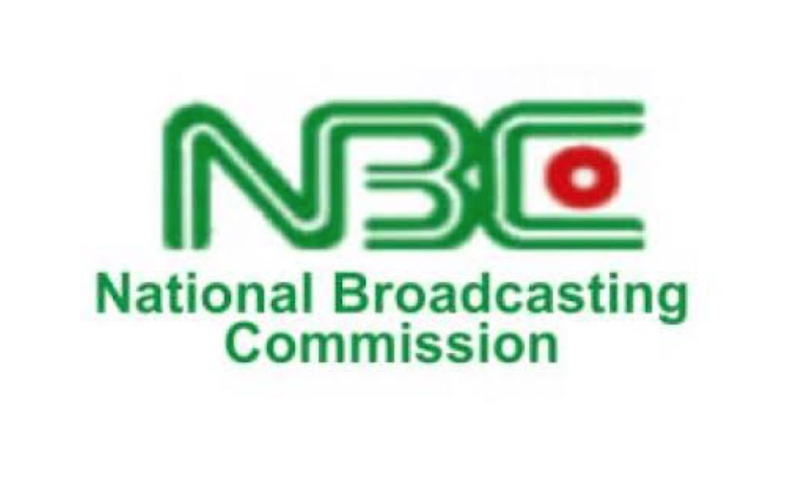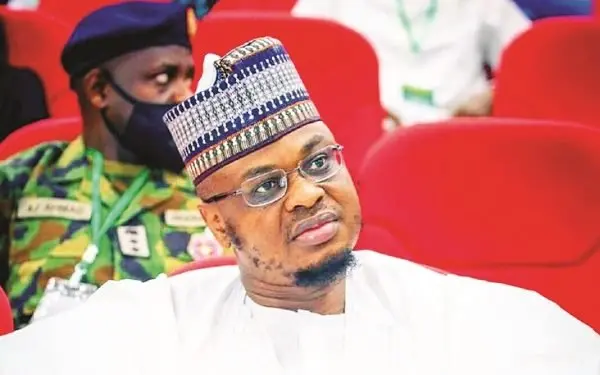The place between the hammer and the anvil is not a good place to be at all. No little moment of comfort but always, a foreboding thought of a lingering crush or disaster. A hammer that may come down and do serious damage, yes, even very serious damage.
So, when an organisation finds itself in a very conflicting but potentially dangerous situation, that organisation has ended up between the hammer and the anvil and has to deploy every trace of ingenuity to achieve escape or get the situation resolved. Unfortunately, resolution could come with more challenges.
A little story is unfolding that has placed the National Broadcasting Commission ((NBC), the regulator of the broadcasting industry, between the hammer and the anvil, and I don’t envy it at all. You may say it has been quiet over there but that quietness is growing into a gathering cloud that may not recognise the wizardry of a rain maker.
An Appeal Court sitting in Port Harcourt, last week, directed the NBC to address the programming sublicensing complaint filed against Multichoice Nigeria Limited by Metro Digital Limited. Both organisations are licensees of the NBC. The judgment made on July 13, 2022, gave the NBC 21 days within which to call the disputing parties to the round table.
For me, the broadcasting industry is getting very interesting as the resolution of this case could go a long way to determine how business is done in the industry. It will affect the depth of competition. It will affect content development and ownership. It will teach us to watch out for mischief and act very spontaneously once a document is being done, and some smart fellows are throwing in some hidden traps. In fact it will add some accoutrement to the definition of deregulation in the business dictionary.
It may help our understanding to sort the condiments in this complex broth. May 25, 2022, a Lagos High Court gave one Mr Femi Davies judgement against the NBC, in which case Justice Ambrose Lewis-Allagoa completely thrashed the 6th edition of the Nigeria Broadcasting Code, describing as ultra vires, incompetent null and void, and therefore perpetually restrained the Commission from implementing it.
In responding to a major complaint against the Code, Justice Lewis-Allagoa said, “I agree with the submission that acquisition of exclusive rights to Broadcast a particular program is an investment for returns and by virtue of the above-stated provisions, no one should be forced to surrender same when it is lawfully acquired…”
For most industry followers, the 6th edition of the Code had suffered expected demise, a reincarnation was not plausible.
Meanwhile there was a residual case in Port Harcourt, where Metro Digital Limited had gone to a Federal High Court with a prayer that the NBC examine its complaints against Multichoice on programme sublicensing. June 18, 2021, the company lost the case presided over by Honourable Justice A.T. Mohammed.
Metro went on appeal, and the wheel of justice began to grind slowly. July 13, 2022, the Court of Appeal set aside the judgment of the lower court with the following consequential order:
A declaration that the continued failure of the 2nd Respondent, as a regulatory body, to issue directives on the complaint of dispute by the Appellant after receipt of the complaint is a breach of its statutory duty and has resulted in the continued unjust/unfair denial/frustration of the appellant’s business and infringement of the Appellant’s rights.
An order of mandatory injunction is issued to compel the 2nd respondent to issue directives on the appellant’s complaint against the 1st respondent pursuant to the Nigeria Broadcasting Code, 6th Edition (as amended). The 2nd respondent shall initiate the process for the determination of the dispute between the appellant and the 1st respondent within 21 days of the date of this judgment, under the auspices of the NBC Act, the 6th edition of the NBC Code and its addendum.
The deregulation of broadcasting in Nigeria in 1992 which invited the participation of private investors made broadcasting a business. While there is open broadcasting, the free to air terrestrial transmission, there are others who offer bespoke services, packaging premium programming to titillate the esoteric taste of individuals financially placed enough to subscribe to those programmes.
A certain genre of broadcasting demands cutting edge creativity and painstaking agglomeration of rich but diverse contents for sustained retention of subscribers. Such programming is subject to variegated purchasing, leasing and transmission agreements. Globally, not so many organisations are able to play at this high end of broadcasting, thus leading to a situation where some broadcasters will press for a sublease. Fortunately or unfortunately, intellectual property enjoys a lot of protection from local and international laws, and such protection suffers no ignorance.
When the 6th edition of the Code was being made, quite a few observations were made by those who thought they knew a little thing about local and international broadcasting, raising the alarm that what seemed to be predetermined and personal interests were being laced into the contents. Those who had the knife and the yam continued in their obstinacy.
Now a smart organisation has secured the support of the Appeal Court to compel the NBC to put the contents of the Code to test. A source familiar with the details of the case told this writer that Metro Digital Limited is asking for a sublicensing of about 27 channels from Multichoice Nigeria Limited. And broadcasting is a business! This may not be the case of one man preparing pounded yam on the basis of another man’s pot of soup. The NBC which has been boxed into a corner by very powerful interests since the coming of the Buhari administration, will now have to make a determination.
Without any aspiration to trading places, the NBC has found itself between the hammer and the anvil. My prayer is for God to give its officials the wisdom of Solomon.
For Eyza, story from a Life
Eyza Trissa Anga has started her journey very early, quite unexpectedly, leaving behind a smile that beautifies life. When her friends from the Nigerian Communications Commission (NCC) and members of House on the Rock Church gathered at the Church auditorium on July 15, 2022, in Abuja, it was to wish her a safe journey to that world of no return where she would have to live at peace with her creator forever.
The video wall magnified that bewitching and encouraging smile which remained her winning trademark. Eyza worked at the NCC but she was the kind of a young lady every boss wanted to have in his or her team because she would get the job done, without a squint or wrinkle.
The Pastor who gave a charge put the story very succinctly. “Only God knows how to create a life and tell a story out of that life.” Eyza’s brief stay with us is a great story of a lifetime, and also quite humbling because most people couldn’t believe that all the testimonials were for the young girl smiling down at all of us. She carried an internal pain which eventually abridged her life. Eyza never showed it. Instead she conquered that pain with a smile, large heart and goodwill.
That night Eyza taught us how to live life. This is why I encourage her husband, family and the NCC to be happy that such a large heart and a beautiful soul came their way. The good is hardly interred, Eyza. Go well.





